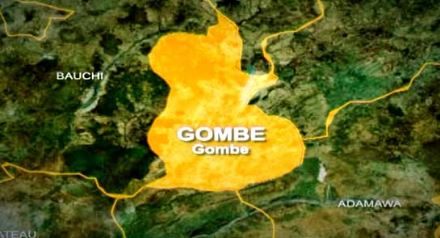The Gombe State Government has demonstrated its commitment to education and public health by approving substantial funding for student examinations and launching a comprehensive sanitation roadmap. In a decisive move aimed at ensuring access to education for all eligible students, the state government, in partnership with its 11 Local Government Areas, has allocated ₦580,870,900 to cover the examination fees of 20,478 students. This significant investment underscores the government’s dedication to fostering human capital development and empowering the youth through quality education.
The allocated funds will cover the examination costs for students participating in various national examinations, including the West African Examinations Council (WAEC), the National Board for Arabic and Islamic Studies (NBAIS), and the National Business and Technical Examinations Board (NABTEB). A significant portion of the funding, covering 18,723 indigenous students, is dedicated to WAEC examinations, the most widely recognized secondary school leaving certificate in the West African sub-region. This commitment ensures that a large number of Gombe State students can participate in these crucial examinations, which are often a gateway to higher education and employment opportunities.
Further demonstrating its commitment to inclusive education, the Gombe State Government has also extended its financial support to 110 exchange students from the 19 northern states of Nigeria. This gesture, initiated by Governor Muhammadu Yahaya, reflects a spirit of collaboration and shared responsibility for educational development across the region. The inclusion of these students reinforces the government’s belief in the power of education to bridge divides and foster unity among diverse communities. Moreover, the government’s commitment to inclusivity is further exemplified by covering the examination fees of 58 students with special needs at the Special Education Centre, ensuring that no student is left behind due to physical limitations.
The distribution of funds reflects a balanced approach to supporting various educational streams. Despite the Federal Government’s reclassification of science and technical colleges to purely technical institutions, the Gombe State government has continued to support technical education by covering NABTEB fees for 1,368 students in technical colleges. This investment underscores the importance the state places on vocational training and skill development, recognizing their crucial role in economic growth and employment generation. Similarly, the government’s commitment to religious education is evident in the allocation of funds to cover the NBAIS fees for 219 students in Government Arabic Colleges, acknowledging the role of religious education in shaping values and promoting social cohesion.
Beyond its investment in examinations, the Gombe State Government has taken a proactive step towards enhancing public health by approving a new sanitation roadmap for schools and healthcare facilities. Recognizing the critical link between sanitation and well-being, this initiative aims to improve hygiene and environmental standards in these crucial public spaces. The roadmap envisions the establishment of a coordinating body responsible for overseeing the implementation and monitoring of sanitation efforts. This body will work in conjunction with various stakeholders to ensure the provision of necessary hygiene infrastructure, develop sustainable sanitation practices, promote hygiene education, enforce sanitation regulations, and engage communities in promoting hygienic environments.
This comprehensive approach to sanitation reflects a deep understanding of the multifaceted nature of the challenge. By addressing infrastructure, education, enforcement, and community engagement, the government aims to create a holistic and sustainable solution. The involvement of the Commissioners for Water, Environment & Forest Resources, Health, and Education underscores the inter-sectoral nature of the initiative, demonstrating the government’s commitment to collaborative action. This integrated approach seeks to ensure long-term improvements in hygiene and environmental standards, creating cleaner, healthier schools and healthcare facilities for the benefit of all residents of Gombe State. This dual focus on education and public health signifies a comprehensive approach to human capital development, laying the foundation for a healthier, more educated, and prosperous future for the state.


